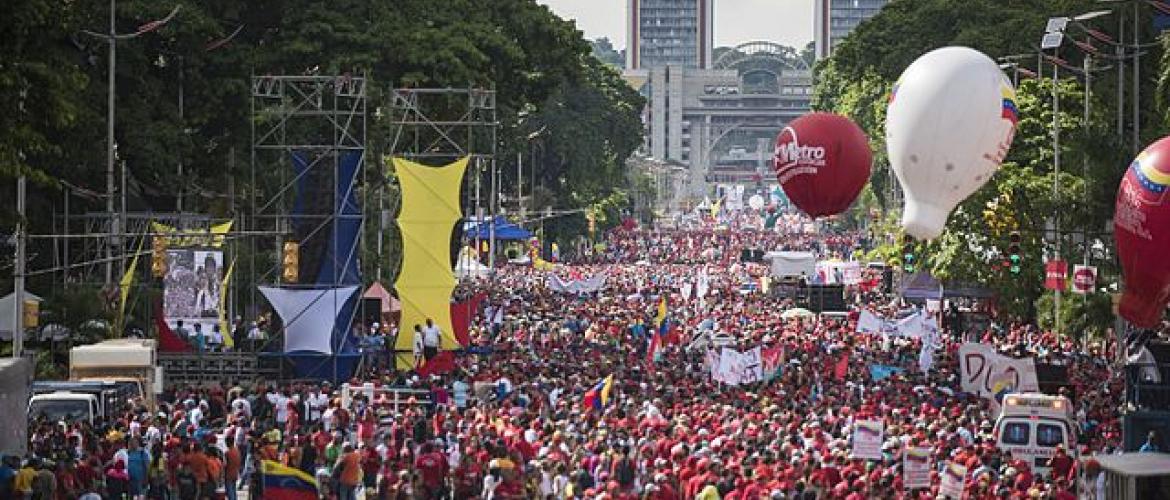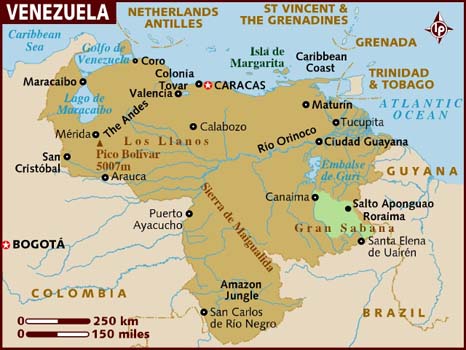Healthcare sector failing in Venezuela
April 8, 2019 | Expert Insights

Venezuela’s health system is in “utter collapse,” according to a report, including the exponential spread of vaccine-preventable diseases such as measles and diphtheria and “dramatic surges” in infectious diseases such as malaria and tuberculosis.
Background
A socioeconomic and political crisis that began in Venezuela during the presidency of Hugo Chávez continued into the presidency of Nicolás Maduro. It is marked by hyperinflation, climbing hunger, disease, crime and death rates, and massive emigration from the country. The situation is the worst economic crisis in Venezuela's history, and among the worst crises experienced in the Americas.
A crisis concerning who is the legitimate President of Venezuela has been underway since 10 January 2019, when the opposition-majority National Assembly declared that incumbent Nicolás Maduro's 2018 re-election was invalid and the body declared its president, Juan Guaidó, to be acting president of the nation.
The process and results of the May 2018 Venezuelan presidential election were widely disputed. The National Assembly declared Maduro illegitimate on the day of his second inauguration, citing the 1999 Constitution of Venezuela enacted under Hugo Chávez, Maduro's predecessor; in response, the pro-Maduro Supreme Tribunal of Justice said the National Assembly's declaration was unconstitutional.

Analysis
The report, to be released on Thursday by Human Rights Watch and the Johns Hopkins Bloomberg School of Public Health, is among the few that have sought to quantify Venezuela’s misery, as the country has ceased releasing health and nutrition data and retaliated against those who did.
Based on interviews with doctors and other health personnel in Venezuela, conducted by telephone and online; refugees in Colombia and Brazil, including health care professionals; and representatives of humanitarian and international organizations, the report concludes that the United Nations should take the lead in providing aid.
It calls on U.N. Secretary-General António Guterres to spearhead efforts to declare a complex humanitarian emergency, an official designation that would trigger a major, comprehensive effort under U.N. auspices and unlock the mobilization of international resources.
Humanitarian aid to Venezuela has been slow, compared to the need, because of the intransigence of President Nicolás Maduro — who has blamed deprivations on U.S. sanctions and refused to allow anything beyond a trickle of assistance to enter the country — and because of the reluctance of some donors to allow assistance to be distributed by the Maduro government.
A U.N. declaration, the reports’ authors say, would put Guterres in a position to press Maduro to allow U.N. agencies to lead and implement a large-scale humanitarian response aid. Guterres has said the United Nations should not join any of the groups of nations promoting various political solutions to the Venezuelan crisis. They include the Lima Group of 14 Latin American nations, which along with the United States and some European countries, has demanded that Maduro leave office in favour of Juan Guaidó, the head of Venezuela’s Legislative Assembly, whom they recognized as the country’s interim president in January 2019.
The Trump administration has imposed harsh economic and diplomatic sanctions against the Maduro government, even as it has stockpiled hundreds of tons of food and medical supplies along the Venezuelan border in neighbouring Colombia that Maduro has not allowed entering.
A contact group of the European Union and eight E.U. member states, along with four Latin American countries — most of them among the 54 countries that have recognized Guaidó — has called for new elections. Separately, Mexico and Uruguay say they have adopted a “neutral” stance, still recognizing Maduro and calling for a political dialogue.
The differences among the groups have left the United Nations in something of a dilemma on how to approach the situation while avoiding a stand on what the political outcome should be. Other major U.N. members, including Russia, a Maduro ally, have criticized U.S. interference.
Assessment
Our assessment is that the collective failure of the Venezuelan Healthcare system is the direct result of gross economic mismanagement by the Maduro administration as well as a result of the ongoing power struggle between Maduro and Guiado. We believe that Maduro’s decision to block any incoming aid from the US and the OAS has only aggravated the situation of the Venezuelan people who are now subjected to hours of daily blackouts and food rationing.
Image Courtesy: EneasMx (https://commons.wikimedia.org/wiki/File:Manifestación_en_apoyo_a_Nicolás_Maduro.jpg), https://creativecommons.org/licenses/by-sa/4.0/legalcode








Comments